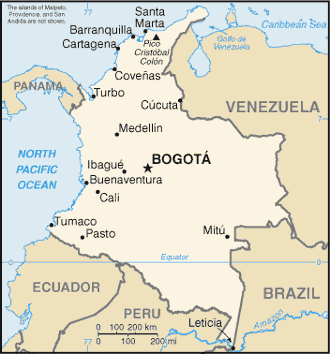In a shocking turn today, the Colombian referendum on a peace deal designed to end a 52-year war with Marxist insurgent group FARC has narrowly failed, with a slight majority of voters backing the continuation of the conflict.
 The two sides signed a ceasefire back in June, which was seen as the beginning of the end of the conflict, but considerable resentment over the multi-generational war, and the agreement not including jail-time for the insurgency was a major sticking point.
The two sides signed a ceasefire back in June, which was seen as the beginning of the end of the conflict, but considerable resentment over the multi-generational war, and the agreement not including jail-time for the insurgency was a major sticking point.
Still, the vote is a shocker, as the polls in the lead-up to the referendum showed about a two-thirds majority of the public in favor of the peace deal. A surprisingly low turnout showed that support wasn’t particularly deep, and allowed those in favor of continuing the conflict to win the day.
It’s unclear what this means politically for President Juan Manuel Santos, who had invested a lot of political capital into the vote, and campaigned heavily for it. Former President Alvaro Uribe, by contrast, was among the leaders of the anti-peace effort, warning that not continuing the war would set a bad example for other factions with grievances.
FARC has yet to comment on the failure of the vote, and it’s not clear that the anti-peace vote will mean an immediate return to full-scale war, but it certainly does dramatically complicate matters. It also almost certainly ends FARC’s promises to compensate victims of the war with what are believed to be considerable financial resources.


